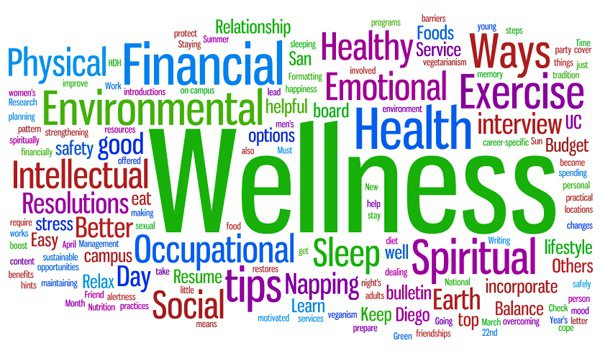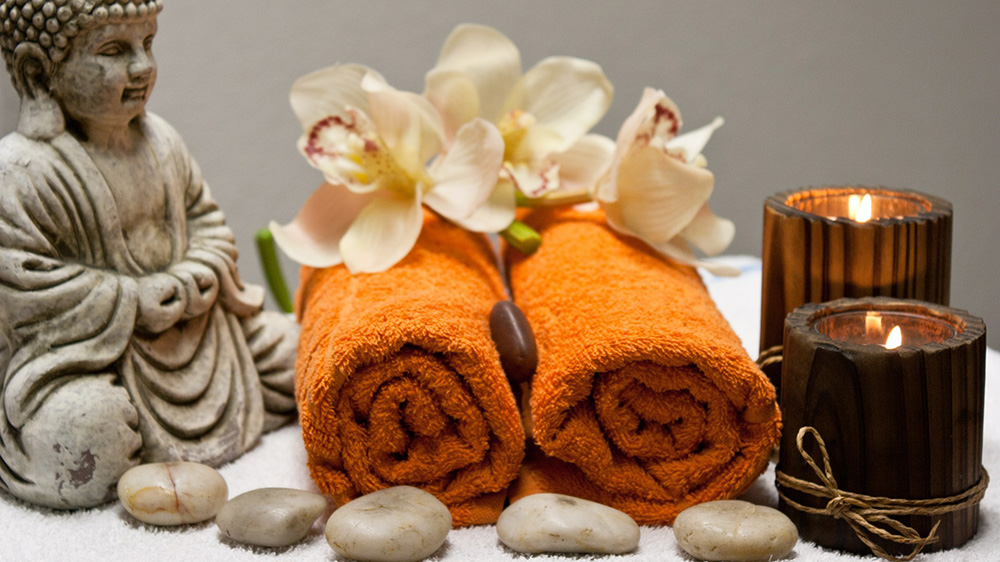August is National Wellness Month, and it is a great time to think about what your Wellness goals are. Wellness means various things to different people. For many people, wellness means physical fitness, holistic care, happiness, relaxation, emotional balance, stress reduction, quality of life and spiritual health. However, many people agree that wellness is more than just being free from illness. The concept of wellness has come to mean practicing a proactive way of living. Everyone has their own definition of Wellness, and the only one that should matter to you – is yours.
The World Health Organization defines wellness as a state of complete physical, mental and social well being, not just the absence of disease. The concept of wellness isn’t something new. In fact, the idea of wellness stretches back to ancient Chinese, Greek and Roman cultures, which all emphasized holistic approaches to achieving health, well-being, and harmony within one’s life. My personal definition of wellness is allowing the best possible health in my physical, emotional, intellectual, spiritual, and social self.
Many of these concepts of wellness are still true today, as we manage even more life challenges than our ancestors did. Many health experts agree that wellness should include a balance among multiple life dimensions: emotional, physical, social, spiritual, environmental, financial, intellectual and occupational. They believe that all dimensions of wellness are interrelated and crucial to a fulfilling life.
What Wellness Means to Some Experts
While I was researching this article, I came across other people’s definitions of wellness. Maybe some of them will resonate with you and help you shape or refine your own.
Amanda Chantal Bacon, founder of Moon Juice
“Wellness to me right now and for the last little bit has been giving myself the permission to take time to take care of myself and to be by myself and to not have to feel guilty for not participating and responding to all of the demands all of the time. And to really give myself space and freedom to be with myself and my family.”
Neil Grimmer, founder of Habit Food
“I think wellness is a feeling: when you just feel activated in all aspects of your body and your mind when things are lined up and they’re harmonized, and you just feel unstoppable.”
Ashley Neese, breathwork teacher, spiritual counselor, and meditation guide
“Wellness means the willingness to trust myself, to follow my instincts even when it’s inconvenient, even when it’s uncomfortable, even when I feel like it’s uncomfortable. It really means trusting myself, listening to myself, and slowing down long enough to really get a clear picture of what’s next.”
Will Cole, functional medicine expert
“Wellness is an idea of total optimal function. And not just physical health. Someone can have physical health and their labs look great, but they are stressed out, and they are isolated, and they aren’t living a full life. But it’s just a total optimal function.”
Krista Stryker, personal trainer
“Feeling good in your own body. Feeling strong in your body and mind, and that they’re in sync with one another.”
Alison Canavan, author and parenting expert
“Wellness to me means peace of mind and heart. That’s what we’re always striving for, and it really means spending time and being present. But real wellness for me means looking at the full 360. Really connecting the dots of your health and well-being for ourselves and understanding what we like and what works for us because we’re all so different. So understand that it’s a personal journey and being comfortable in your own skin. Being OK with saying, this is what works for me; this is what I like doing.”
While each of these experts have their own unique definition of wellness, there are definitely common themes that have to do with nurturing the mind and the body.
Creating Your Wellness Goals
Once you have a good idea of what wellness means to you, you can start looking at creating goals to increase your sense of wellness. Having a clear idea of the different things you want makes it much easier to create those changes.
Typical wellness goals include maintaining a healthy weight, reducing stress, managing medical challenges, increasing fitness or nurturing creativity to fulfill personal and professional goals. Some people I’ve talked to want a better balance between work and home. Others want to be more organized and less cluttered. And some people want to be more intuitive and better at listening to the signals their body gives them.
My wellness goals are centered around being aware of how I’m feeling, and using that awareness to make improvements as I go. In other words, it’s being aware of what is working in life and improving upon it, and also being aware of what is not working and being proactive about improving it. I’m always looking for the balance in my life, so I’m relaxing enough, moving enough, eating the things that makes my body feel good, thinking in ways that make me feel good emotionally, and challenging my mind and body in a way that create improvements.
I’m a big fan of writing things down, so now is a great time to grab a notebook. You could start by sketching out your definition of wellness, and then move on to listing some things you’d like to improve on. As we’ve learned, everything on this list has an impact on your overall wellness.


